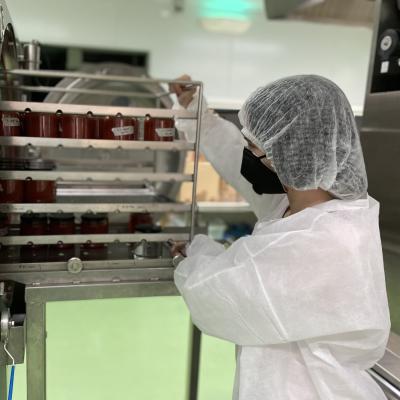
In the 24 May meeting, EU ministers responsible for internal market and industry called for a set of measures in support of competitive industries to drive innovation and economic growth in Europe. Advancing the bio-based economy, creating favourable conditions for the uptake of sustainable and circular products, strengthening public-private collaborations based on the success of joint undertakings and other partnerships, boosting the investments in key strategic sectors, as well as maintaining coherent and accessible regulatory framework were among key conclusions of the meeting. These points echo the discussions of CBE JU stakeholders during last December’s forum in Brussels captured in the event’s report.
Highlights of the Council conclusions
- Circular economy, sustainable resources management and research on the substitution of raw materials significantly contribute to enhancing EU resilience regarding primary raw materials, sustainable feedstock, water and other critical resources. Europe also needs to reduce its strategic dependencies in sensitive sectors such as chemicals and biotechnology
- Developing sustainable European supply chains and increasing Europe’s research, innovation and production capacity are key growth factors.
- EU needs to create favourable conditions for the uptake of sustainable, net zero, low carbon and circular products and materials.
- Member States should work together to develop a single market for waste, secondary raw materials and recycled products, promote advanced materials and circularity, and strive for a level playing field for companies pursuing high environmental and social ambitions.
- Strengthened cooperation between industry (including SMEs), research and technology organisations, higher education institutions, funding agencies and relevant public authorities will boost innovation and accelerate industrial and market uptake.
- The European Commission should finalise the update of the bioeconomy strategy by the end of 2025 and integrate it in other policies, to ensure that the bioeconomy contributes substantially to the green economic transition.
- Investments in key strategic sectors and infrastructures require a combination of public and private funding. Drawing on existing mechanisms and partnerships, such as Joint Undertakings, will support this goal.
- The EU budget continues to play an important role in the development of European industries. Application procedures for EU funding, however, need simplification.
- Legal certainty and a coherent, predictable, future-proof and accessible regulatory framework are vital to foster investments and uphold environmental and social standards.
- Companies, especially SMEs and start-ups, need testing sites and regulatory sandboxes to bring innovations to the market.
CBE JU stakeholders support the Council’s vision
Last year’s CBE JU stakeholder forum focused on pushing the boundaries of innovation, fostering sustainability and creating new business models to help shift Europe from fossil-based to bio-based production and consumption. The event on 6-7 December in Brussels brought together industry leaders, experts, researchers, policymakers and enthusiasts from Europe and beyond.
Key takeaways of the forum are aligned with the Council conclusions:
- CBE JU is a success story in advancing the European bio-based sector, in terms of de-risking investments and engaging a fragmented stakeholder community around a common goal.
- Bio-based production must reach beyond the replacement of fossil-based products with bio-based ones: it has to be circular, minimise the use of natural resources and consider environmental, social and economic impacts.
- The regional dimension is key in the bioeconomy, since biomass is locally sourced and the bio-based sector is an important booster of local economies. Regions are also important drivers of innovation.
- The European bio-based sector needs to present a strong common narrative to support the take-up of bio-based solutions by both large industries and consumers.
- The shift from fossil-based to bio-based production and consumption requires consistency in legislation and policy objectives, supportive industrial regulation, access to finance, and adapted standardisation.
The transition to a circular bio-based economy can only happen through true collaboration among all stakeholders, ranging from primary producers to researchers, to small businesses and large industries as well as acceptance by consumers.